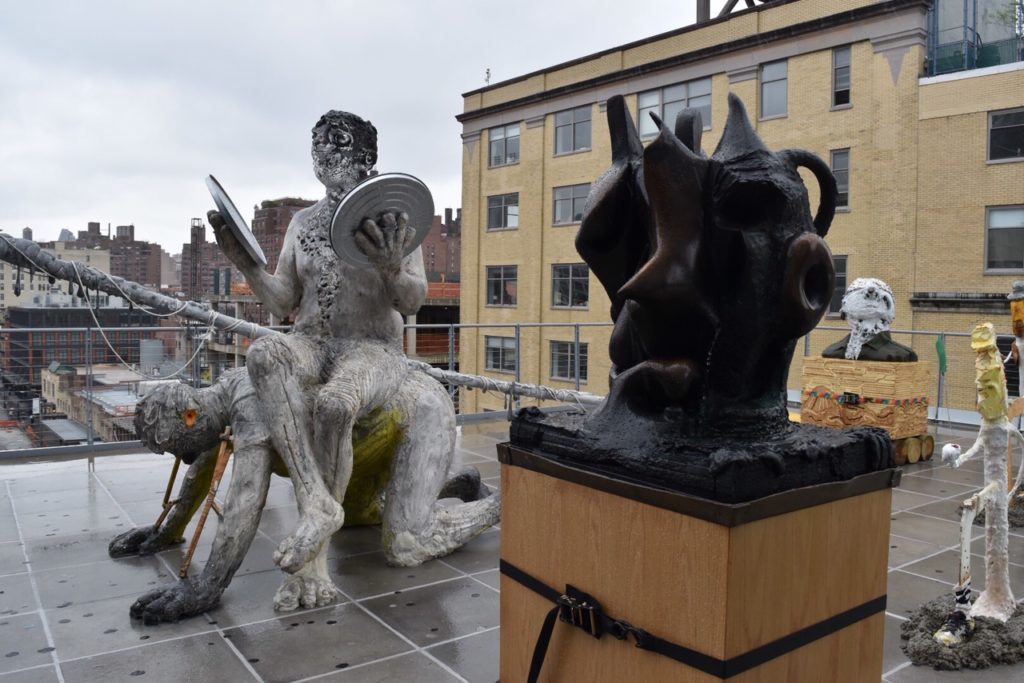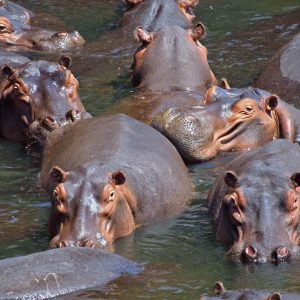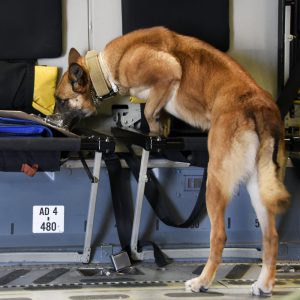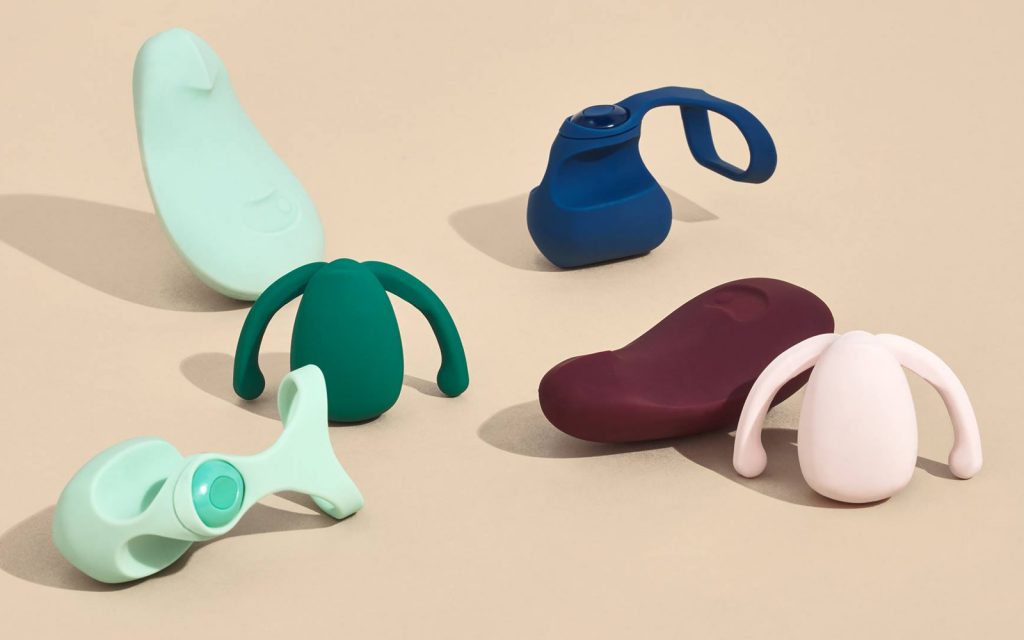Link About It: This Week’s Picks
Insight into the Whitney Biennial, a win for sex-tech, tips for ethical tourism and more

Lora DiCarlo’s Pleasure Toy Award Reinstated at CES
 Earlier this year, sex-tech company Lora DiCarlo was awarded a Robotics Innovation Award at CES, then the award was revoked. Now, CES has again changed their collective minds, and reinstated the women-centric Osé pleasure toy the honor, with the Consumer Technology Association announcing that they “did not handle this award properly.” The debacle did, as expected, result in important conversations around inclusivity in tech, sex-tech and women’s pleasure. While the reason for the initial rescinding remains unclear, the CTA insists that there will be changes made before next year’s conference. DiCarlo says that she’s optimistic, “We are hopeful that our small company can continue to contribute meaningful progress toward making CES inclusive for all.” Read more at The Verge.
Earlier this year, sex-tech company Lora DiCarlo was awarded a Robotics Innovation Award at CES, then the award was revoked. Now, CES has again changed their collective minds, and reinstated the women-centric Osé pleasure toy the honor, with the Consumer Technology Association announcing that they “did not handle this award properly.” The debacle did, as expected, result in important conversations around inclusivity in tech, sex-tech and women’s pleasure. While the reason for the initial rescinding remains unclear, the CTA insists that there will be changes made before next year’s conference. DiCarlo says that she’s optimistic, “We are hopeful that our small company can continue to contribute meaningful progress toward making CES inclusive for all.” Read more at The Verge.
The 79th Whitney Biennial Curators on the Show’s Influences
 From complex appreciation to declarations of pleasant and considerate curation and calm amidst controversy, the reviews for this year’s Whitney Biennial vary—as one would expect of an exhibition tasked with representing the immediate state of art in the USA. Curators Rujeko Hockley and Jane Panetta (members of the museum’s curatorial staff) selected 75 participants—with a successful focus on diversity and representation. Further, three quarters of the artists are under the age of 40. As the curators traversed the US to make their selections, they were driven by reactions to a “sense of urgent financial and professional struggle due to college debt, real-estate development, and gentrification,” according to ArtNet. Head there to learn more and learn why the curators chose to tackle these issues plaguing artists today.
From complex appreciation to declarations of pleasant and considerate curation and calm amidst controversy, the reviews for this year’s Whitney Biennial vary—as one would expect of an exhibition tasked with representing the immediate state of art in the USA. Curators Rujeko Hockley and Jane Panetta (members of the museum’s curatorial staff) selected 75 participants—with a successful focus on diversity and representation. Further, three quarters of the artists are under the age of 40. As the curators traversed the US to make their selections, they were driven by reactions to a “sense of urgent financial and professional struggle due to college debt, real-estate development, and gentrification,” according to ArtNet. Head there to learn more and learn why the curators chose to tackle these issues plaguing artists today.
National Geographic’s Tips on Ethical Wildlife Tourism
 In an attempt to navigate tourists away from problematic and unethical wildlife experiences, National Geographic has published five tips for tourists. To prevent animals’ suffering, one must tread lightly and look for red flags. Research, of course, is most important. As tourists love animals and the industry can be responsive, we must all look through potentially misleading terms like “gives back to conservation,” “sanctuary,” and “rescue,” and seek to keep experiences genuinely wild, respectful and observant. Read more at NatGeo.
In an attempt to navigate tourists away from problematic and unethical wildlife experiences, National Geographic has published five tips for tourists. To prevent animals’ suffering, one must tread lightly and look for red flags. Research, of course, is most important. As tourists love animals and the industry can be responsive, we must all look through potentially misleading terms like “gives back to conservation,” “sanctuary,” and “rescue,” and seek to keep experiences genuinely wild, respectful and observant. Read more at NatGeo.
MIT Scientist’s Quest For a Bot That Can Smell As Well As a Dog
 “We have $100 million worth of equipment downstairs. And the dog can beat me?” MIT scientist Andreas Mershin asks. “That is pissing me off.” Mershin aims to develop a bot that detects an antigen that can be an indicator of prostate cancer. It’s one that properly trained dogs can sniff out with 90% accuracy. The physicist’s lab, Label Free Research Group, is attempting artificial olfaction, and while “robots these days can see, hear, speak, and (crudely) think,” scent is harder to pinpoint. To learn more about Mershin’s mission to build an artificial nose and classify odors, head over to Wired.
“We have $100 million worth of equipment downstairs. And the dog can beat me?” MIT scientist Andreas Mershin asks. “That is pissing me off.” Mershin aims to develop a bot that detects an antigen that can be an indicator of prostate cancer. It’s one that properly trained dogs can sniff out with 90% accuracy. The physicist’s lab, Label Free Research Group, is attempting artificial olfaction, and while “robots these days can see, hear, speak, and (crudely) think,” scent is harder to pinpoint. To learn more about Mershin’s mission to build an artificial nose and classify odors, head over to Wired.
1 Terabyte MicroSD Cards Hit Shelves
 For $450, one can now buy a 1 terabyte version of SanDisk’s Extreme microSD cards. While the announcement was made back at Mobile World Congress, the product is now officially available on the SanDisk site. Current read speeds reach 90MB/s, and write speeds rise to 60MB/s—and an even faster version is expected in the near future. As Tech Crunch notes, many may “have a nightmare about losing a dime-sized card with a terabyte of data on it.” Head there to learn more.
For $450, one can now buy a 1 terabyte version of SanDisk’s Extreme microSD cards. While the announcement was made back at Mobile World Congress, the product is now officially available on the SanDisk site. Current read speeds reach 90MB/s, and write speeds rise to 60MB/s—and an even faster version is expected in the near future. As Tech Crunch notes, many may “have a nightmare about losing a dime-sized card with a terabyte of data on it.” Head there to learn more.
Link About It is our filtered look at the web, shared daily in Link and on social media, and rounded up every Saturday morning.












